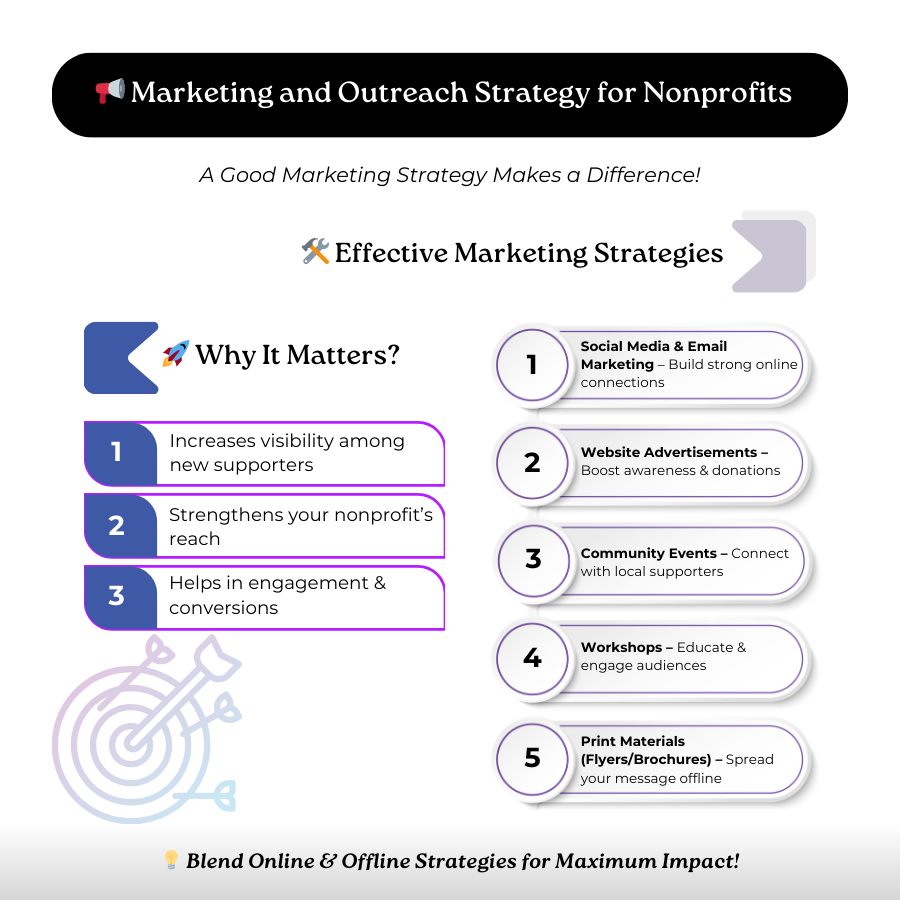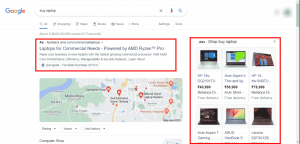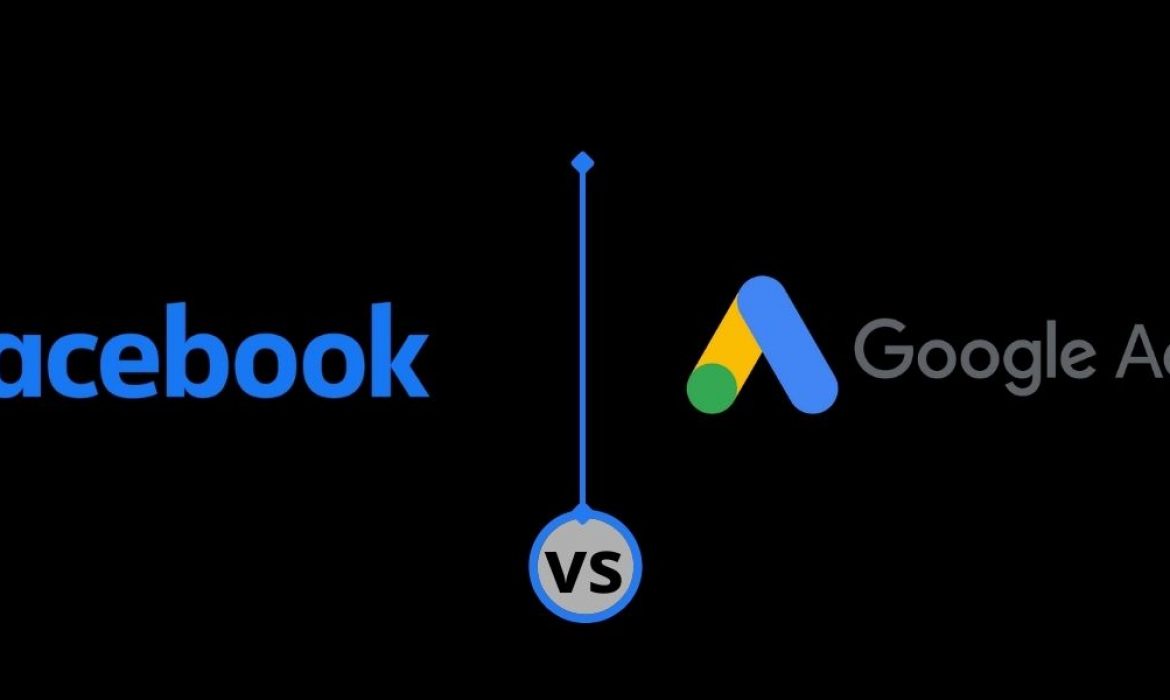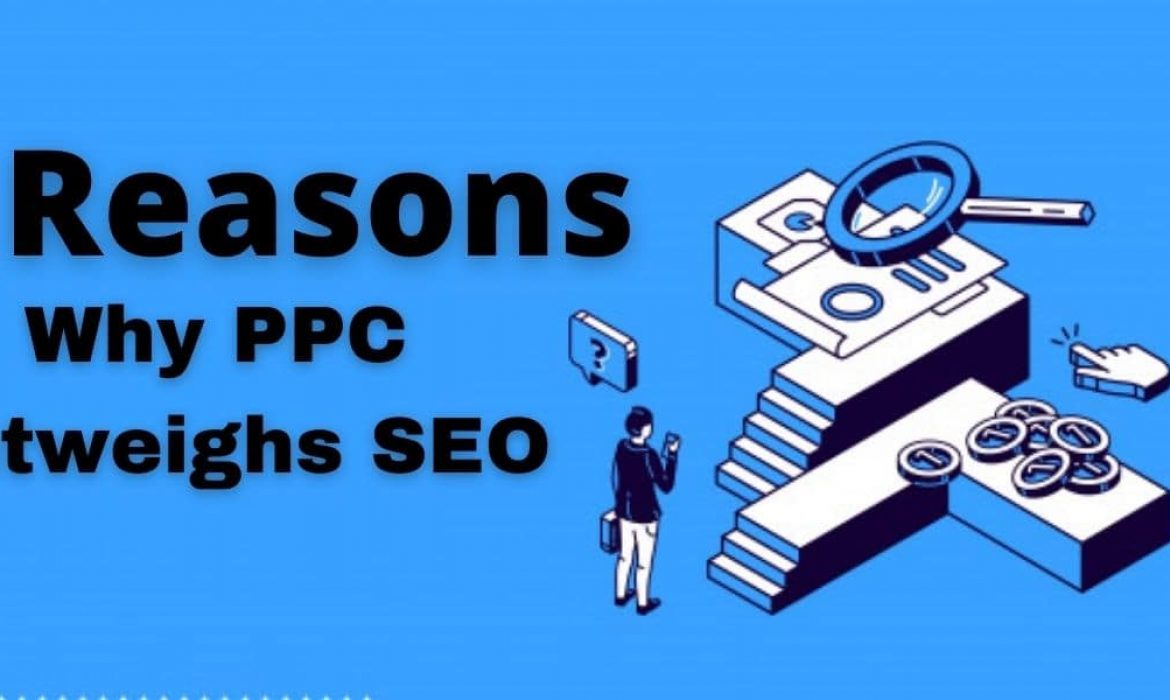How to Write a Nonprofit Business Plan
Introduction
A nonprofit business plan is an essential document in the management of an organization working to fulfill a social mission. Unlike profitable entities, nonprofit organizations focus much on creating positive effects in society rather than making profit. Here are some of the reasons why a non profit business plan is essential:
- A good nonprofit business plan format is the roadmap that guides the activities of your nonprofit.
- It ensures the understanding of the objective while keeping the financial status in order.
- It provides direction and serves to clarify the mission of the organization to your stakeholders, including donors, partners, and community.
- It also offers you quantitative measures of success or failure and helps in adjusting the strategy as needed.
In this article we will understand the essentials needed to write a business plan for nonprofits. We can deliver better readability through AI tools such as Grammarly while managing our productivity track using apps like Notion.
Nonprofit Business’ Mission and Vision
The importance of having a mission and vision
The mission and vision are the heart of a nonprofit business plan. A mission statement outlines the purpose, values, and overall direction for a nonprofit whereas a vision expresses long-term aspirations. For any organization, a mission acts as a guiding principle for making decisions and taking actions.
Clarity of a Mission
The mission must be defined in such a way that it is specific and connected with the ethics and goals of an organization. For example, the failure of Crystal Pepsi teaches us that deviating from core values (in this case, retaining the black color) can expose the business to problems. Nonprofits must align themselves with their mission so that neither they lose supporters nor they lose focus.
Sustainability of a Vision
Another essential aspect is sustainability. Nonprofits must work to strategize expansion opportunities for growth. These might include entry into new markets, partnerships, or adding a business-to-business (B2B) or business-to-government (B2G) revenue source. Sustainability over time allows for the continuation of the work.
Organizational Structure
A nonprofit business works efficiently and properly when a structure is introduced. It is very important to segregate the members of a nonprofit into numerous sections and departments as needed (For Example: Marketing Department, Finance Department, Strategy Team, etc.). In this way, multiple teams can work together in order to bring the ultimate mission to a success.
Segregation of employees
An effective nonprofit business plan format depends on having a clear organizational structure.
- It clearly defines the roles and responsibilities of every staff member, volunteer, or board member.
- It consists of various departments: administrative, program management, marketing, and fundraising, each having their own functionalities.
- These multiple departments collectively work towards achieving a single mission.
Legal Terms are important
Besides the general rules, the company should also be clean in legal terms. The legal framework of a nonprofit should include:
- Compliance rules– A set of laws, guidelines, standards, and ethical principles that a company or organization must adhere to
- Maintaining tax-exempt status- A status which releases the federal corporate income tax on income generated from activities related to the business’ mission.
Therefore, before organizing the nonprofits, it is advisable to consult the experts so that your rules and policies comply with the necessary laws.
Segregation of employees
The mission must be defined in such a way that it is specific and connected with the ethics and goals of an organization. For example, the failure of Crystal Pepsi teaches us that deviating from core values (in this case, retaining the black color) can expose the business to problems. Nonprofits must align themselves with their mission so that neither they lose supporters nor they lose focus.
The leaders hold the main job
- The leadership team plays a huge role in terms of the success or failure of the organization.
- Executive Director and board of directors lead the non profit.
Defining all the people’s responsibilities clearly brings accountability and makes the organization work as one unit towards its mission.

Market Research and Analysis
The right way to conduct Market Analysis
For the proper conduct of market research,
- You need to establish the requirements which your company needs to respond to.
- Break a broad problem into smaller, more workable pieces.
- Research each piece in more detail.
Example of conducting research
A nonprofit organization that aims at education and can conduct research on topics such as literacy programs or access to technology for less privileged students.
Case Study on understanding the audience
Understanding your target audience is also of equal importance. Notice how BMW would not attempt to reach the shampoo consumer. This is because their targeted audience revolves around automobile enthusiasts. A nonprofit business plan must make sure that the business’ services are relevant to their target audience. It aids in identifying the right audience for your programs and services.
Significance of Market Analysis
Market or competitor analysis is an important part of a nonprofit business plan. Knowing what other nonprofits in your field are doing, you will be able to identify the USP for your organization.
What is a USP?
A USP (Unique Selling Proposition) is the uniqueness that your business holds amongst the other competitors. According to the U.S. Small Business Administration, having a uniqueness in your product gives a competitive advantage over others. Something as simple as “made from recycled waste” can be your USP.
These analyses will help you to identify strengths and weaknesses in your nonprofit. They also help you to work on areas of risks that could come along with those weaknesses.
Programs and Services
Serve the community, follow the mission
At the core of every nonprofit organization is its programs and services. These should be based on the mission and oriented towards fulfilling the needs of the community.
Case Study of Back on My Feet
Back on My Feet is a non-profit that helps people experiencing homelessness. The program works by organizing running groups. Each group must commit to running three times a week with volunteers. Participants gain physical and mental strength, and over time, they also receive job training, housing resources, and help with employment.
This approach helped individuals to improve their circumstances. Back on My Feet now operates in multiple U.S. cities, helping people transition out of homelessness through structured support and practical skills.
Case Study of Coca-Cola
The program needs to produce an effective community impact while enhancing the reputation of the organization. During the design of the program, measurable goals must be set, and success should be tracked. Tools such as Tableau are useful in monitoring real-time program outcomes.
Marketing and Outreach Strategy
A Good marketing strategy makes a difference
A good marketing and outreach campaign comes under business plans for nonprofits.
- They help your nonprofit get greater visibility with new supporters.
- They might be a blend of both online and offline strategies.
- These may include:
- Social Media and Email Marketing
- Website Advertisements
- Community Events
- Workshops
- Print materials like Flyers or Brochures.

Significance of Partnerships
Another good marketing strategy is partnerships. This nonprofit business plan is easy for nonprofits to reach a broader audience and intensify the impact by engaging with other organizations, businesses, or government entities. They can also increase their cause’s awareness by building relationships with local influencers or community leaders.
Speaking
Engagement is equally important and can be done by the following:
- Stay in continuous touch with the donors, volunteers, and partners ensure continued support.
- Show appreciation of contributions.
- Keep stakeholders informed of the progress
These steps make the public relationships stronger and more loyal.
Financial Plan, Budget, and Fundraising
Finances play a crucial role in running a non-profit business. These act as a fuel to run the business and is therefore important to look out for the sources of income. Some common sources of finance include:
- Donations and Grants: These are funds given to a business by the government or by an organization in order to achieve the business’ goals.
- Crowdfunding: It is a step taken by the business to gather a small amount of money from a large group of people.
- Corporate sponsorships: It is a mode in which a company or an organization pays money to stay associated with the business.
And many more.
Income is important for Nonprofits
Any nonprofit organization requires financial sustainability for long-term success. A nonprofit business plan should have enough paths to generate income and manage its expenses.
Expenses must be made with proper calculations
Besides income, expenditures should be well planned because it includes proper use of funds. These expenses generally include:
- Operating costs: Such as salaries of the staff, program expenses
- Overhead costs: Costs related to administration
One useful approach to financial planning is to save before spending. This keeps the organization running in bad times too. Imply formulae like Income – Savings = Expenditures.
Raising funds is a key part
Fundraising is an integral part of any financial plan. In most cases, nonprofits focus on creating campaigns which help in raising funds and grants. As witnessed by the success of The Trevor Project-a nonprofit that specializes in the welfare of LGBTQ youth, we can understand the power of campaigns. Therefore, by developing a proper financial plan, nonprofits are sure to perpetually grow and improve their programs.
Conclusion
- A well-structured nonprofit business plan provides a clear roadmap.
- It ensures financial stability, and is operationally efficient.
- Understanding the mission and vision, organizational structure, market research, program development, and financial planning will help the non profit to avoid challenges and can maximize their impact.
- The nonprofit business plan needs to be reviewed and updated. This allows organizations to stay prepared for new opportunities or challenges that might emerge.
In this manner, nonprofits may make long-lasting contributions while following their own mission.
CIMAC Marketing
CIMAC lies among the top-ranked digital marketing companies in the International market. We have a team of expert professionals who understand your marketing needs and use social media platforms and websites to promote your products and services such that you reach a huge number of clients in the most convenient way.
Contact Our Live HELPLINE
A Practical Guide to Conducting Market Research for Your Business
Introduction
Market research plays a vital role in the success of any business. It helps you understand your target market, assess market demand, and make informed decisions to drive growth. In this guide, we will explore the step-by-step process of conducting market research with practical examples and tools.
- Define the Research Objective:
Before diving into market research, it’s crucial to define your research objective. Let’s say you’re planning to launch a new line of organic skincare products. - Identify the Target Market:
Identify your target market for the skincare products. For instance, you may target health-conscious individuals aged 25-45 who are interested in natural and eco-friendly beauty products. - Choose Research Methods:
To gather data, you can employ a combination of primary and secondary research methods. Here are some practical examples:
Primary Research:
- Surveys: Create an online survey using tools like Google Forms or SurveyMonkey to collect feedback on skincare preferences, interest in organic products, and purchasing habits.
- Interviews: Conduct one-on-one interviews with potential customers to gain in-depth insights into their skincare needs and preferences.
- Focus Groups: Organize small group discussions with members of your target market to explore their attitudes towards organic skincare and gather feedback on product concepts.
Secondary Research:
- Market Reports: Access market research reports from trusted sources like Statista, IBISWorld, or Mintel to understand industry trends, market size, and growth projections for the skincare industry.
- Competitor Analysis: Research and analyze existing organic skincare brands to understand their product offerings, pricing, marketing strategies, and customer reviews.
- Develop Research Instruments:
Create well-designed questionnaires for surveys and discussion guides for interviews and focus groups. Include a mix of multiple-choice, rating scales, and open-ended questions to gather comprehensive data. - Collect Data:
Implement your chosen research methods and collect data from your target market. Distribute surveys online, schedule interviews, or organize focus group sessions. Utilize video conferencing tools like Zoom for remote interviews or focus groups. - Analyze and Interpret Data:
Once you have collected the data, use tools like Microsoft Excel, Google Sheets, or specialized data analysis software to analyze the responses. Look for patterns, trends, and key insights that will help you understand market demand, preferences, and potential opportunities. - Draw Conclusions and Make Recommendations:
Based on your data analysis, draw meaningful conclusions about the market demand for your organic skincare products. Identify gaps or unmet needs that your products can address. Use this information to make informed decisions and develop recommendations for product development, marketing strategies, and target market positioning.
Note:
Market research is an ongoing process that requires continuous monitoring of industry trends, consumer behavior, and competitor activities. By conducting comprehensive market research, you can gain valuable insights that will guide your business decisions, mitigate risks, and maximize your chances of success.
Remember to tailor your market research approach to your specific business and target market. The examples and tools mentioned here serve as a starting point, and you can explore additional resources and techniques based on your unique requirements.
A simplified example of Market Research: This is how you can do a market search before launching a business.
Let’s walk through a simplified example of market research for a hypothetical business idea: opening a specialty coffee shop in a specific neighborhood. Here are the steps you can follow:
Define Your Objective:
Clearly define what you want to achieve with your market research. In this case, it could be understanding the feasibility and potential demand for a specialty coffee shop in the target neighborhood.
Identify Target Market:
Determine the specific demographics and characteristics of your target customers. For example, young professionals, students, or coffee enthusiasts who reside or work in the neighborhood.
Gather Secondary Data:
Start by gathering existing information and data related to the coffee industry, market trends, and consumer behavior. You can utilize resources like industry reports, market research studies, government publications, and online databases to gain insights.
Conduct Primary Research:
Primary research involves collecting firsthand data specific to your target market. You can use various methods:
a. Surveys: Create an online survey using tools like Google Forms or SurveyMonkey to collect feedback on people’s coffee preferences, frequency of visits to coffee shops, and interest in a specialty coffee shop in the neighborhood.
b. Interviews: Conduct one-on-one interviews with potential customers, local residents, or employees in nearby businesses to gather qualitative insights and understand their needs, preferences, and expectations.
c. Focus Groups: Organize small group discussions with coffee enthusiasts or target customers to delve deeper into their thoughts, perceptions, and preferences regarding specialty coffee and their experiences with existing coffee shops.
Conduct Primary Research:
Primary research involves collecting firsthand data specific to your target market. You can use various methods:
a. Surveys: Create an online survey using tools like Google Forms or SurveyMonkey to collect feedback on people’s coffee preferences, frequency of visits to coffee shops, and interest in a specialty coffee shop in the neighborhood.
b. Interviews: Conduct one-on-one interviews with potential customers, local residents, or employees in nearby businesses to gather qualitative insights and understand their needs, preferences, and expectations.
c. Focus Groups: Organize small group discussions with coffee enthusiasts or target customers to delve deeper into their thoughts, perceptions, and preferences regarding specialty coffee and their experiences with existing coffee shops.
Analyze and Interpret Data:
- Once you’ve gathered both secondary and primary research data, analyze and interpret the findings. Look for patterns, trends, and key insights that can guide your decision-making process.
- Identify potential market size, customer preferences, demand for specialty coffee, willingness to pay, and any gaps or opportunities that exist.
Evaluate Competition:
- Research and analyze existing coffee shops in the target neighborhood. Visit their locations, review their menus, observe customer traffic, and read online reviews. Evaluate their strengths, weaknesses, pricing strategies, and overall customer experience.
- Identify ways to differentiate your specialty coffee shop and determine if there is room in the market for another coffee shop.
Make Informed Decisions:
- Based on your market research findings, evaluate the feasibility and potential profitability of opening a specialty coffee shop in the target neighborhood.
- Consider factors such as location, target market demand, competition, pricing strategies, unique selling propositions, and potential challenges.
- Use the insights gained from your research to make informed decisions about your business concept, location selection, menu offerings, pricing, marketing strategies, and overall business plan.
Remember, market research is an ongoing process, and it’s important to continuously gather feedback and stay updated with changing market trends and customer preferences. The depth and complexity of your market research may vary based on your specific business idea, target market, and industry.
Google Ads V/s Facebook Ads: Which Will Get You A Better ROI?
It is one of the most asked questions in the digital marketing world. There’s constant competition going on between the two platforms, both having millions of users.
Marketers use the two platforms for advertising as they maximize visibility, thereby increasing leads and sales. But the two ad platforms work in different ways, and which one you need depends on your goals.
Google Ads
Google Ads, also referred to as Paid Search, is the world’s largest and even one of the two most popular PPC platforms. The other one is Bing Ads.
Paid Search focuses on keywords like some specific words and phrases likely to be used by a user and text-based advertisements. The ads are displayed on the search results. And each time the user clicks on the ad, a charge I paid by the advertiser. So, it is known as “Pay-per-click advertising”.
Marketers pay charges to gain new customers and achieve their goals.
Facebook Ads
Facebook Ads is also known as Paid Social. This is because it is a social networking platform where advertising products are conventional. Being at the top rank of monthly active users, Facebook has become a highly competitive platform used for digital marketing.

Google Ads V/s Facebook Ads: Which Will Get You A Better ROI?
Unlike paid search, which brings businesses via their search queries, paid social help to find companies based on their interested items and the ways they behave online.
Google Ads help marketers find new customers, while Facebook Ads help new customers to marketers.
Google Ads will help you generate leads right away and give out an instant ROI on your investment while Facebook Ads will help new customers to get aware of your brand name and your products. This way will help to generate leads and better ROI in the long run.
So, choose wisely. Because their competition will never end.
8 Reasons Why PPC Outweighs SEO
Are you tired of working on your SEO strategies to boost your website’s ranking on search engines? If you have tried every SEO strategy possible but failed to generate results, it’s time to switch to another marketing strategy. What can be better than using PPC advertisements to get in front of millions of internet users?
PPC, or Pay-Per-Click, refers to the paid search advertising where you need to pay a charge every time there is a click on your ad. You won’t be paying any price for impressions. You only pay when you generate traffic to your website or landing page. People won’t click on your ad and visit your page unless they are interested in what you offer. That’s why PPC is more effective in bringing quality traffic to the website than by using SEO.
Solely depending on SEO might result in losing some valuable traffic or revenue. You need to include PPC into the picture to generate results. Therefore, you should think of using both of the strategies together. This might work great in your favor and reach out to more people.
However, PPC advertisements aren’t only for those who failed to use SEO effectively. Even if you haven’t given SEO a try, considering PPC over SEO will still be a good choice. If PPC advertisements are used effectively, they can have a major and positive impact on the business’s growth and even on customers.
Are you still confused about prioritizing PPC over SEO? If you are, the underneath reasons will surely help you get rid of the indecisiveness you have about them right now!
Here are 8 Reasons Why PPC Outweighs SEO.
1. PPC advertisements can bring Instant Traffic, which SEO can’t.
Instead of struggling to appear on the first page of Google with SEO strategies, you can use PPC advertisements. PPC advertising slots are already there on the first page. If you prefer using SEO, it might take months to actually find your website on the first page or have a better ranking. However, with PPC advertisements, you no longer have to wait for months to see traffic driving into your website. In other words, you will generate instant traffic to your website for any related search query. So, why don’t you think of giving a try to these paid search ads?
2. PPC ads appear above SEO results.

For any search query, PPC advertisements appear above SEO results. People don’t waste too much time digging through websites to find the right information. They are more likely to go for the top result for any search query. So, if your PPC advertisements appear at the top for a relevant search query, the chances of getting the clicks increases. So, don’t you think it will be a good way to target your potential customers?
3. PPC ads target ready-to-buy customers.
Unlike SEO, PPC lets you target customers who are ready to buy them. People search for products or services when they need them. So, if your ads appear in front of them when they are in absolute need of them, you will generate more clicks and even better conversions. This is known as inbound marketing. This is quite an effective way of positive revenue generation.
4. PPC ads can support your SEO strategies.
You can test your keyword strategy in PPC before actually using them for SEO. You need to do it because organic keywords are kept hidden most of the time. However, the case is totally different from paid search. You can get an overview of all the keywords related to your industry niche. Along with the keywords, you will find information like how effective they are in converting and their cost. You can use this keyword information while working on your SEO strategies. More specifically, you can use it while optimizing the website content, meta description, headlines, etc. For that, you have to work on your PPC advertisements first and then it can support your SEO strategies.
5. PPC ads don’t depend on the search engines’ algorithm changes.
One of the main reasons why PPC outweighs SEO is that it doesn’t depend on the search engines’ algorithm changes. Ranking higher on the SERPs and SEO strategies largely depend on search engine algorithm updates. However, PPC advertisements are more likely to not get affected by these algorithm changes. Even if it happens, it is very rare. You will rarely find PPC algorithms going through huge changes. This means you can easily determine how your ad campaigns will perform in the current and future scenarios.
6. PPC ads offer multi-layered targeting options.
PPC advertisements offer several different targeting options like users’ locations, ages, and preferences. This makes the targeting process even more specific and helps to attract customers locally or globally as per their preferences. Unlike SEO, PPC allows you to filter out your audience even more. As you create different ad campaigns, you will slowly be able to determine which campaign is working better for you. In other words, you will understand what kind of campaigns are engaging more people and even on which platform. In this way, you can easily target different types of customers on different platforms.
7. PPC ads are easier to produce than SEO.
Another great advantage of using PPC over SEO is that PPC ads are easier to create. You don’t need any designing or production skills to create the campaigns. However, you might need some expertise in this field if you want to create effective PPC advertisements. This is because doing keyword research properly or using Google Ads to create successful campaigns need certain basic knowledge. If you are new to this strategy, it’s best to hire some professional help. Like, you can hire a good PPC management agency near you.
8. PPC ads can bring positive ROI.
Like all other digital marketing tools, PPC also offers measurable results. Measuring the results regularly helps to determine whether you need to improve and when you need to monetize. In addition to that, PPC campaigns are a lot easier to measure than any other digital marketing strategy. It means you can keep on improving the ad campaigns until they generate positive results. Moreover, you can stop running the campaigns right away when you find they are not working. This prevents you from wasting your ad budget uselessly. In short, you can keep on experimenting with your ad campaigns until it offers your desired results.
Why do you need a PPC management service?
Businesses across the world depend on PPC management services for using PPC effectively. So, it is nothing new if you also think of using this marketing tool and getting a PPC service for your business.
As a business owner, you probably want to get the best results without investing much. However, as nothing comes free of cost, you might have to invest in some strategies like PPC advertisements to generate positive results. That’s why it is best to hire a professional PPC management agency. It will be a more cost-effective option than hiring an in-house team.
Our PPC specialists have years of experience and knowledge in creating PPC campaigns and ads on different platforms. So, once you join hands with us, you don’t have to worry about substandard ads that won’t produce any result.







